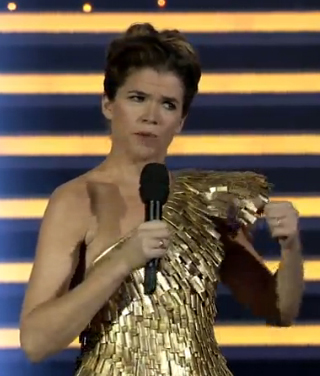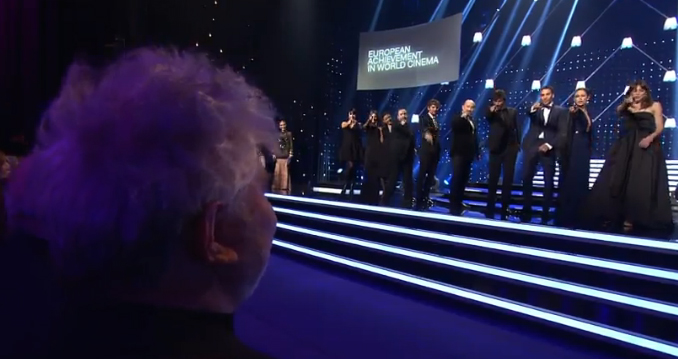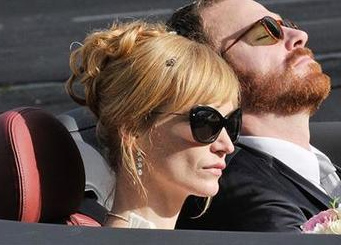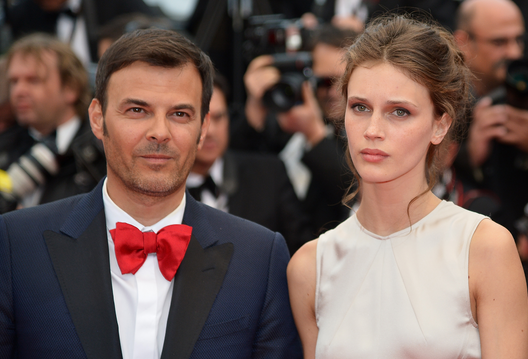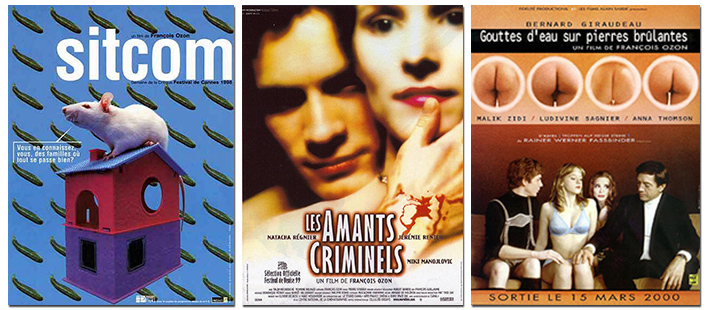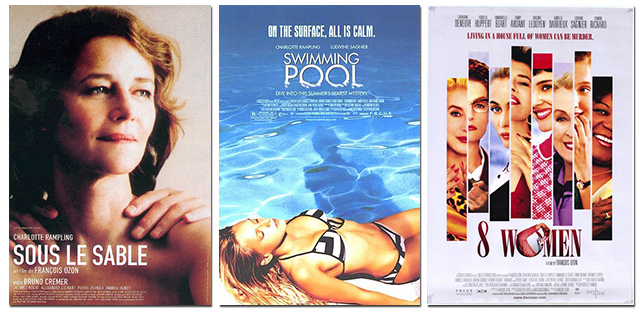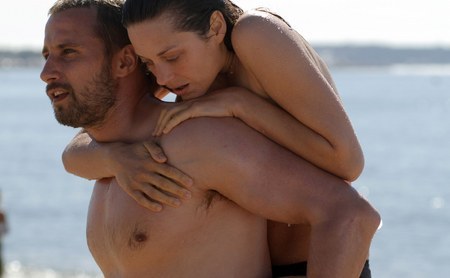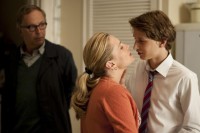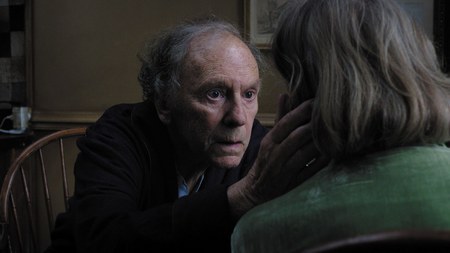TIFF: The New Girlfriend
 Saturday, September 13, 2014 at 8:01PM
Saturday, September 13, 2014 at 8:01PM Nathaniel's adventures at TIFF continued
François Ozon remains one of France's most prolific directors. Like most prolific auteurs this means an uneven filmography. Even the very good films can feel ever-so-slightly underrealized. Is it the rush or just the nature of the artistry of the prolific, all first draft energies, favorite or borrowed styles structures and themes, and just warming-up ideas with the occasional lightning-strike perfections?
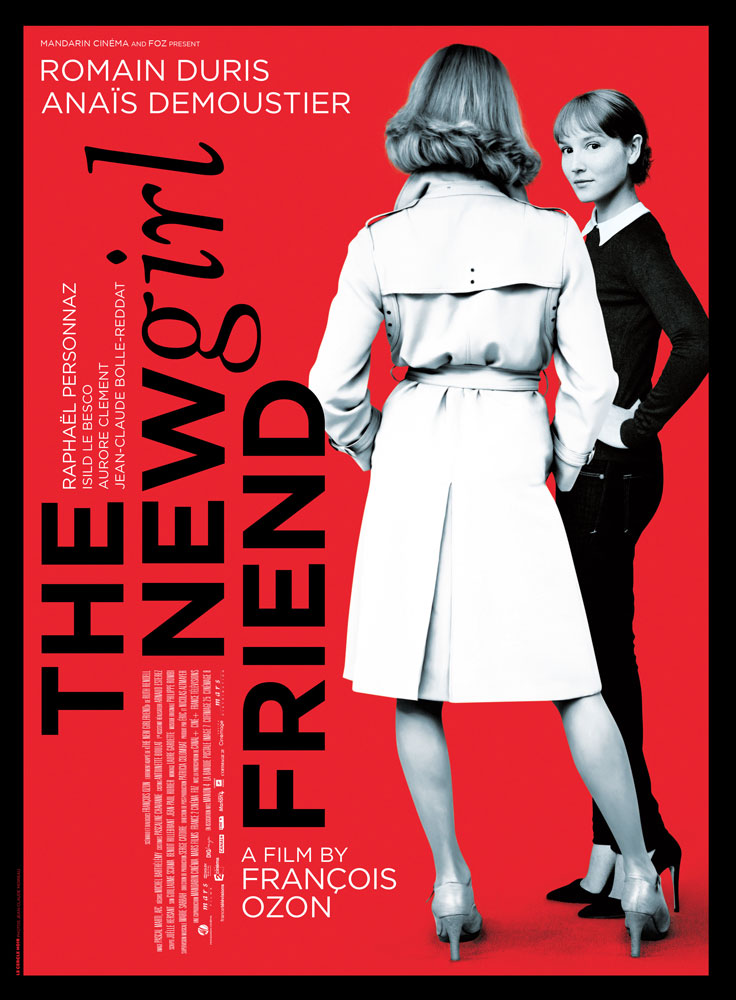
Like many fans I'm still waiting for another of those lightning strike perfections like certain moments in Under the Sand or 8 Women in full but his not-quite-there efforts can still be highly appealing: Potiche anyone?
The New Girlfriend turns out to be all of the above with grand moments, messy ones, energetic diversions, familiar tropes and half formed ideas... which as it turns out is just fine for a movie about embryonic searches for new identities. It begins with a funereal yet beautiful opening sequence that recalls an Almodóvarian trance, and quickly moves into an Up-like backstory prelude detailing the very intimate friendship of Laura and Claire (Anaïs Demoustier) from childhood to Laura's early death. When we begin our actual story Claire and her husband Gilles (Raphael Personnaez, who also starred in The Gate at this festival) along with Laura's widowed husband David (Romain Duris) and his infant daughter Lucie are all still reeling from Laura's demise. One day on a guilty whim, Laura jogs to David's house to check in on Lucie only to make a startling discovery when no one answers the door and she lets herself in: there's David, in full drag, tenderly feeding Lucie with a bottle like a good mother. Claire can't believe what she's seeing and to cover her tracks for where she was that day with her husband she says she was with "Virginia... a girlfriend, someone you don't know." And thus begins our subject matter with the title taking on multiple meanings. Is David more Virginia than David? Which of them is Claire befriending? How desperate are both of them to recreate Laura in her vacuum? And what kind of a girlfriend can Virginia even be since she has a visible penis?
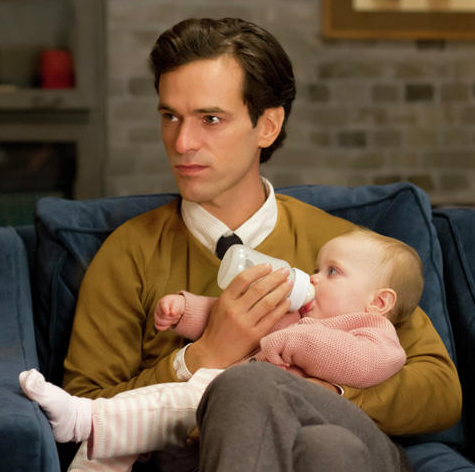 The rest of the film is largely devoted to both farcical and dramatic consequences of this new secret in Claire's life with delightfully surprising beats amply peppered across the character arcs. Demoustier proves rather masterful in delineating Claire's internal confusions and hypocrisies, especially and most amusingly her illicit hypocritial thrills in having a new girlfriend at all (the prelude makes amply obvious that Laura and Claire were so devoted and happy together that they didn't cultivate other friendships). But full warning: the film is way too comically provocative and politically incorrect to please the easily offended which many in the LGBT community seem to be of late. Claire for example thinks 'gays are fine, trannys are not!' in one joke that goes over well in context but will surely offend out of it and calls David "sick" while still encouraging him to do it. David isn't as certain of what his gender fluidity means to be a role model for any political agenda. And Gilles ignores ambiguities and is convinced that David is just gay, always has been.
The rest of the film is largely devoted to both farcical and dramatic consequences of this new secret in Claire's life with delightfully surprising beats amply peppered across the character arcs. Demoustier proves rather masterful in delineating Claire's internal confusions and hypocrisies, especially and most amusingly her illicit hypocritial thrills in having a new girlfriend at all (the prelude makes amply obvious that Laura and Claire were so devoted and happy together that they didn't cultivate other friendships). But full warning: the film is way too comically provocative and politically incorrect to please the easily offended which many in the LGBT community seem to be of late. Claire for example thinks 'gays are fine, trannys are not!' in one joke that goes over well in context but will surely offend out of it and calls David "sick" while still encouraging him to do it. David isn't as certain of what his gender fluidity means to be a role model for any political agenda. And Gilles ignores ambiguities and is convinced that David is just gay, always has been.
Though Romain Duris has long since proved his worth as a leading man, his screen attraction is entirely masculine, so I'll admit that it was easy to wonder what the film would have been like had the more beautiful Personnaez considered his inner woman instead. Would it have dulled the surprise or the comedy or made Claire's confusing situation between the two men in her life and this new girlfriend more believable? Who can say? The time jumped epilogue leaves things both tied neatly up and slightly ambiguous as to what went down between the climax and the credits roll but by that time we know the characters well enough to draw our own conclusions. B
 Drag Queens,
Drag Queens,  Francophile,
Francophile,  François Ozon,
François Ozon,  LGBT,
LGBT,  Reviews,
Reviews,  Romain Duris,
Romain Duris,  TIFF,
TIFF,  foreign films
foreign films 


